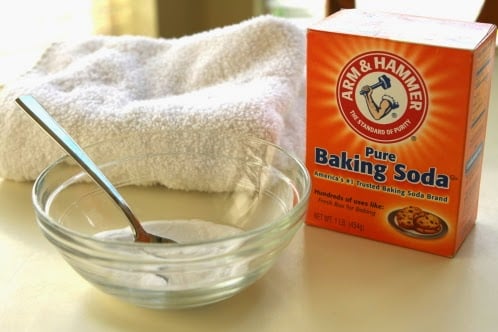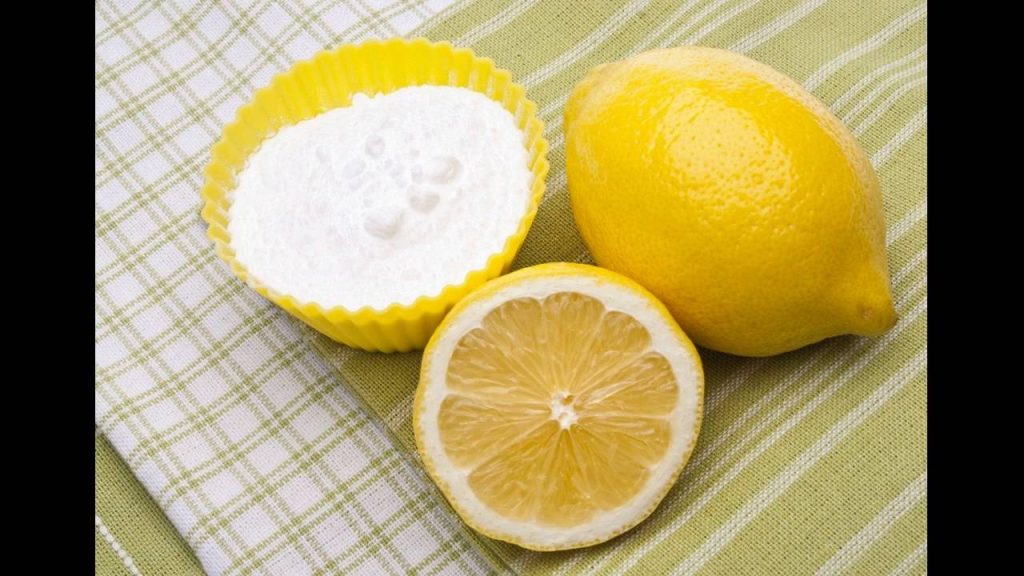For those with gluten intolerance, it can be tricky to figure out which ingredients are safe to use in your recipes. One of the most commonly asked questions is whether baking soda is gluten-free or not. Let’s take a look at the answer and what you should know before using it in your cooking.

Table of Contents
What is Gluten?
Before we get into the specifics of baking soda, let’s take a quick look at what gluten actually is.
Gluten is a type of protein found in grains such as wheat, barley, and rye. It gives bread its elasticity and helps give many baked goods their fluffy texture.
For people with gluten intolerance or celiac disease, eating foods containing even trace amounts of gluten can cause serious health problems, ranging from mild irritation to more severe inflammation and digestive issues.
Is Baking Soda Gluten-Free?
The good news for those with gluten intolerance is that baking soda does not contain any gluten whatsoever.
Baking soda is made from sodium bicarbonate, which comes from natural mineral deposits found in the ground. As such, it does not contain any wheat or other grains that could potentially trigger an allergic reaction in those who are sensitive to gluten proteins.
That said, it’s important to note that some baking powders may contain small amounts of gluten; always make sure to check the label carefully before purchasing or using them in your cooking.
Read more: Do Rice Cakes Have Gluten? Uncover the Truth
How To Substitute Baking Soda In Your Recipes
When it comes to substituting baking soda for other ingredients in recipes, there are a few things you need to keep in mind.
First off, baking powder already contains an acid (such as cream of tartar) that reacts with the sodium bicarbonate in baking soda when combined with liquid ingredients like milk or water; this reaction causes doughs and batters to rise and become fluffy during baking.
If you’re following a recipe that calls for both baking powder AND baking soda but you only have one on hand, simply double the amount of either ingredient called for—for example if a recipe calls for 1 teaspoon of baking powder and 1/2 teaspoon of baking soda, use 2 teaspoons of either one instead!
FAQs
Is Bob’s Red Mill baking soda aluminum free?
Yes, Bob’s Red Mill Baking Soda is aluminum-free.
It contains only one ingredient: sodium bicarbonate, which has been tested and confirmed to be free of aluminum. This product is also non-GMO, certified gluten-free, vegan-friendly, and Kosher Pareve.
So you can feel confident using it in your baking and cooking.
Bob’s Red Mill Baking Soda respects the highest quality standards, delivering a pure and natural product that is sure to please. No matter what you are making, this aluminum-free baking soda ensures perfect results each and every time.
Is baking soda organic?
No, baking soda is not organic. Baking soda is an inorganic compound that consists of sodium and bicarbonate ions. It is also known as sodium bicarbonate or bicarbonate of soda.
Baking soda is a leavening agent which produces carbon dioxide gas when combined with moisture and an acidic ingredient such as yogurt, vinegar, or lemon juice. This reaction causes the dough or batter to expand and rise, giving baked goods a light and fluffy texture. Baking soda is also used in many household cleaning recipes due to its alkaline properties that help remove dirt and grime from surfaces.
In summary, baking soda is not organic, but it is a useful culinary and cleaning ingredient that has many beneficial properties. It is an important pantry staple to have in any home!
Does baking soda have corn?
No, baking soda does not contain corn.
Baking soda is also known as sodium bicarbonate and it is a pure chemical compound found naturally in mineral deposits. It is composed of sodium, carbon, and oxygen atoms and has no connection to corn or any other type of grain.
Baking soda is often used as a leavening agent in baked goods, as it helps doughs and batters to rise. It can also be used for cleaning and deodorizing, adding pH balance to swimming pools, and more. Baking soda is a versatile product that does not contain corn or any other grain products.

Conclusion
In conclusion, when it comes to people with gluten intolerance or celiac disease wondering whether or not they can safely use baking soda in their cooking—the answer is yes! Baking soda does not contain any glutens whatsoever and is completely safe for those who are sensitive to wheat proteins.
Be sure to check labels carefully on other products like baking powder before using them though; some varieties may contain trace amounts of gluten proteins so always read labels carefully just be safe! Thanks for reading and happy cooking!
References:








